The Jamaican reggae and ska legend is back in the UK this summer to perform a select bunch of gigs and festivals.
He exclusively tells editor Simon Redley about the joy and the pain of his very first visit to these shores in the 1960s.
Reggae and ska legend Jimmy Cliff’s first trip to the UK gave him his very first experience of racism…
After an invite from Island Records who had just signed him, an excited wide-eyed young James Chambers aka Jimmy Cliff touched down at Heathrow Airport from his home in Jamaica.
But his excitement soon changed to disappointment, when officials turned him away and were going to send him back to the sunshine.
Once the red tape cock-up had been resolved, Jimmy travelled to the accommodation his record label had arranged from him, in central London. After a good sleep, the next morning he went out to do his usual daily exercises, which were interrupted by a woman asking him what he thought he was doing.
The landlady of the digs in Earls Court, London, where he had a room, booked by his record label. His first encounter with her. Jimmy tells her he is a resident and has a room at the house. Her response was horrific, and unlike anything he had ever come across back home.
“What are you doing here? Don’t you know that we don’t have coloured people here? She said, you have got 24 hours to get out. I said, OK, if you want me out, you have to get me out on my head (sic), and I slammed the door.
Out through the window goes the racism…
“About two days after that, I was on Top of the Pops, not performing; I was one of the guests around the audience. Nina Simone was performing, and I was one of the kids around her.
“The next day, she (the landlady) said, ‘Oh, I saw you on the tele’ yesterday’. You can stay as long as you want. Now I had become a celebrity, all is fine! Out through the window goes the racism”.
Jimmy laughs down the line from Florida, as he tells me this horrible story. He gives me more detail about arriving in the UK and his memories and experiences of those days from 1965.
“My first time to London I was almost sent back. I was invited by Island Records and when I got here, at the airport they would not let me in. Things were not straight or whatever, and they were going to send me back. But it got sorted out”.
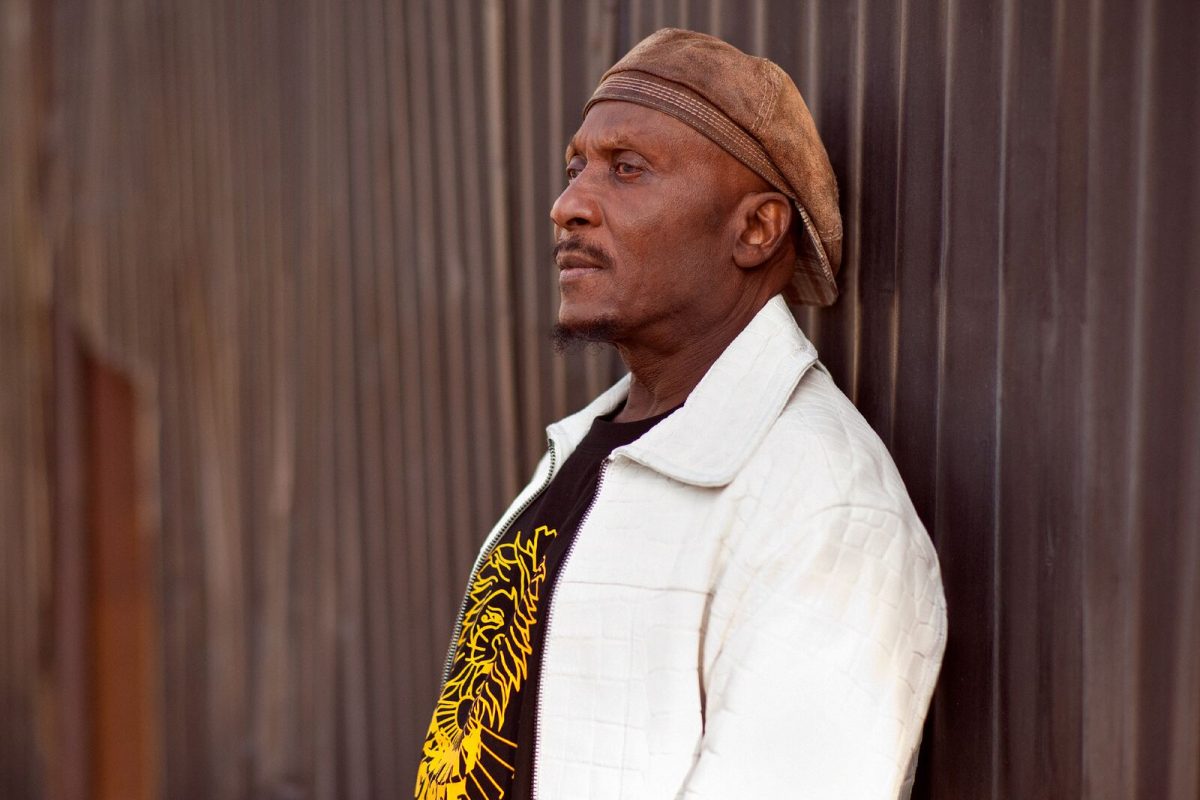
So, once he was allowed in to the country and his landlady had changed her mind about her despicable, but typical for those times, racist policies, what were his first thoughts of this new country he was now a resident of?
“I couldn’t understand the weather when I first got here. The cold; where did it all come from? I’d never seen houses with so many chimneys and I didn’t know that they were chimneys.
“I said,’ Oh, is that why so many people come to England because there are so many factories, because they can get so much work here? Then I realised they are houses and the chimneys are on houses, not factories!
“I learned there were great museums in London. I visited many of the museums”. Jimmy lived in the UK for 15 years, for a short time with his brother in Bradford, West Yorkshire; but mostly in London, until he went back to Jamaica.
“My mind was opened to a whole lot of different kinds of music. When I came, I came with my Ska music, and I had to incorporate rock and roll and soul music, and all the different sorts of music, just to survive.
England did that for me…
“All of that was great learning for me. If you listen to all of my song writing and my songs, you will notice they have a variety of feel and rhythms. England did that for me. I always look forward to coming back to England, because if you live in a place for a long time, that place becomes a part of you and you become a part of it”.
As a kid in Jamaica, Jimmy was discovered by Derrick Morgan who got producer Leslie Kong on board. Jimmy became famous back in Jamaica at the age of 14 in 1962, for a hit single he cut, called “Hurricane Hattie”. He was actually born during a terrible storm 14 years earlier. His debut album was 1967’s “Hard Road To Travel”.
After “Hurricane Hattie”, he followed up with hits “King of Kings”, “One Eyed Jacks”, and “Pride & Passion” and was a young and gifted sensation on the Jamaican ska scene. After signing with Chris Blackwell’s Island Records label, Jimmy’s album “Wonderful World, Beautiful People”, became a huge breakthrough release.
The Cat Stevens cover “Wild World” from this album, was a massive worldwide hit. In 1970, Desmond Dekker went to number one with Jimmy’s song, “You Can Get It If You Really Want”.
Jimmy had a big hit with the Johnny Nash-penned song “I Can See Clearly Now,” in 1993 for the soundtrack of the film “Cool Runnings”. Jimmy’s soundtrack to the cult hit film, “The Harder They Come”, which he also starred in, was a big success for him, after which he moved record labels to Columbia Records.
Grammy-winner Jimmy toured with Peter Tosh and recorded with Kool and the Gang in the 1980s. He had a re-birth in 2004 with his Grammy winning album, “Black Magic”, which had guests including Sting, Joe Strummer & Wyclef Jean.
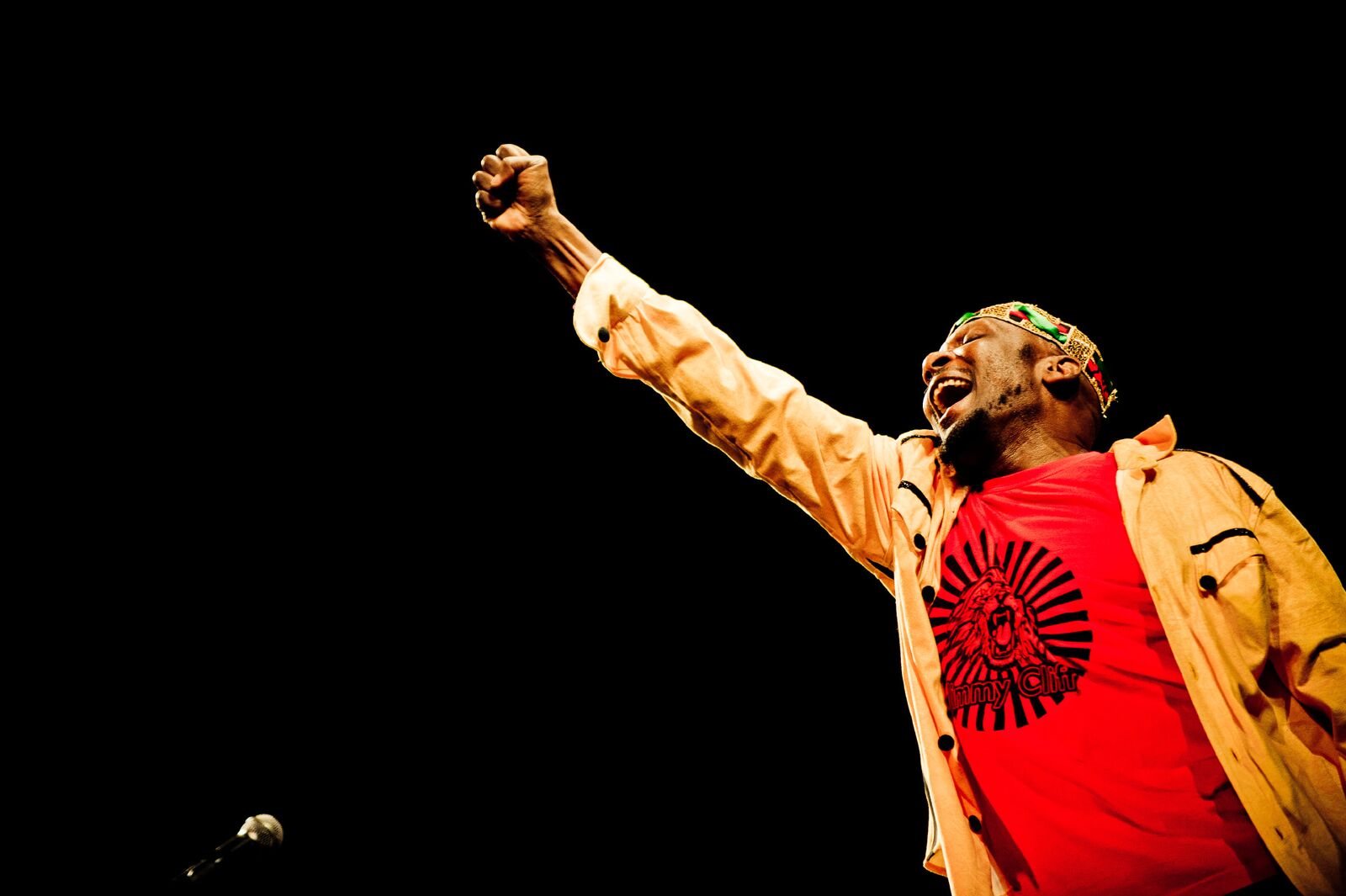
What’s the best thing about the UK? “It allowed me my first international hit. It opened doors for me. My first global hit; ‘Wonderful World, Beautiful People’. I don’t think that would have happened if I was in the US, you know”.
Which of his hits means the most to him and why? “I wouldn’t say it is one particular song. As I said, ‘Wonderful World, Beautiful People’ has meant a lot, because that was my first hit in the UK Top 10, and it opened the gate internationally. If I was in the US, I don’t know if that could have happened, you know. My first hit in Jamaica; my first # 1 there was also very important to me.
“Then songs like ‘Many Rivers To Cross’, and ‘Vietnam’, came at the point in my life and what I was going through (sic), so it is difficult to pick just one. My favourite song today is a new song, ‘Moving On’, on my next album, which is not out yet. About getting back up when you are knocked down by life; and move on”.
Jimmy goes on to reveal the low moment in his life that triggered the emotions he tapped in to, to write that song. “It was a point in time when people around me thought, ‘Boy, Jimmy’s not the same. Jimmy’s not the same person we know. He has changed and not for the better; he is changing.
Why do they want me to feel bad?
“I say, I am changing for myself, to better myself. Why are they talking about me like that? Why do they want me to feel bad? That brought me to a very low point in my life, and that pulled those emotions out of me. Look, I am moving on to higher heights, I am leaving them in the blinding light…. I am just moving on and not paying attention to them”.
Jimmy Cliff and Bob Marley are the sole Jamaican artists to be inducted into the Rock and Roll Hall of Fame. Jimmy has also received his country’s highest honour “The Order of Merit’.
Jimmy has carved a long career for himself as a singer and a recording artist, and his songs have been covered by many stars such as Bruce Springsteen, Willie Nelson, Cher and New Order. Bob Dylan famously calls Jimmy’s song “Vietnam,” “the greatest protest song ever written.”
So, his work earns him annual royalties, from sales of his own records and those of artists who cover his songs. Some on-line sources say Jimmy’s current net worth is around $10 million (circa £7.4 million GBP). The likes of the Rolling Stones, Elvis Costello, Annie Lennox and Paul Simon are among a starry cast list who have queued up to collaborate with Mr Cliff.
It is 56 years since he recorded his first record – a single back in Jamaica. It is 51 years since his debut album was released. Having just turned 70 on 1st of April (2018), has reaching that age had any emotional impact on the man and his song writing?
“I’ve always been a global thinker. One of the good things going to the UK for me; it allowed me to open my mind to my global way of thinking. At this stage of my life, I have achieved quite a lot of what I wanted to achieve, such as touching the whole planet.
“Any part of the planet I go, there is somebody there, some people there that knows (sic) Jimmy Cliff. But I had other ambitions in the industry of writing and acting, and for me; the greatest songs have not been written yet. “The greatest films have not been done yet. The greatest shows have not been done yet. So at this time, those things are still in my sub-conscious”.
So, is the best song you are yet to write, on its way yet? “I believe they are there. I believe I have to do what is necessary to bring them out, and sometimes you have to be in some situations. For example, the song ‘Wonderful World, Beautiful People’. I didn’t write that song while I was in the UK.
“I got invited to Brazil to do a festival, and nobody knew who Jimmy Cliff was. But the next day, everybody knew who Jimmy Cliff was. I was motivated and stimulated, and I wrote that song. So, you have to be in certain kind of situations to bring out what is deep inside of you. But as long as it is there, it will come out”.
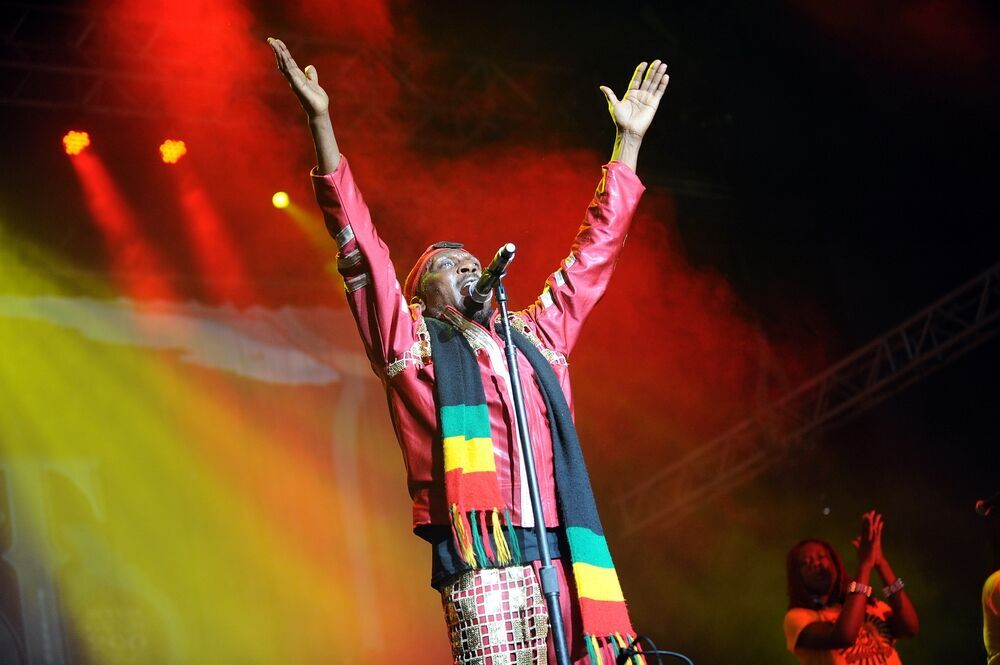
Jimmy’s take on what he feels he was put on this earth to do, aside from music…“To encourage, motivate, help, stimulate other people. For instance; Desmond Dekker, Bob Marley, Sly Dunbar…quite a few of the groups. It was my input that really pushed them out to the light.
I discovered Bob Marley…
“Lots of people don’t know I was the one who got Bob Marley to make his first song. His first record. I auditioned him and picked three songs, and that was the Blueprint of his life. I just have that knack to do things like that, you know.
“If you listen to Traffic’s (Editor’s note: It was Spencer Davis Group – not Traffic) first hit, ‘Keep On Running’, I was in the studio sitting down listening, and they were there for hours trying to get this song. A spirit in me just got up and made me count off the song, ‘I,2,3’ and if you listen to that song, you hear me sing, ‘hey, hey, alright, yeah’. That’s me on the record.
“I’m here to motivate people, help people, pull out the thing that they have in them, that no one else is pulling out of them. So not only in the music business, but whatever business it may be…I am a motivator, mentor and an inspiration all in one”.
Jimmy’s best advice to young artists starting out in the music business today: “Be yourself”. This is his passionate message: “Remember, you are unique. No matter what anybody else has or what they can do; what you have, no one else has got. Remember that. Be yourself always”.
They used to laugh at me singing…
He recalls the best advice he feels was ever given to him; by his Grandmother back in Jamaica, when he was a young kid always singing around his family home. “They (his family) used to laugh at me when I walked around the house, singing. They’d say stop, all the time. My grandmother would say, leave him alone. He going to become somebody (sic). She said, don’t let them deter you. Go where you want to go, she said to me; and that is the best advice I’ve had”.
The best thing about being Jimmy Cliff? “Lots of doors opened which would not normally open to me.“That is saying a lot, because as a black man living on this planet; that picture I painted to you there (the racism against him in London in 1965), that means a lot”.
Jimmy is close to completing his new album, and he reveals he is working on plans to make the sequel to ‘The Harder They Come’, the movie he starred in. Cliff starred as Ivanhoe “Ivan” Martin in the cult hit movie “The Harder They Come” in 1972, and he featured prominently on the soundtrack album. His other film appearances include “Club Paradise”, “Muscle Shoals”, “Marked For Death” and more.
He says they will change the title for the follow-up, to the title of one his biggest hits “Many Rivers To Cross”. “Everybody says yes; we have got a good script now. It is something I am looking forward to doing if we can get it off the ground”.
With rap, hip hop and pop being the dominant genres of music in the mainstream charts these days, does Jimmy feel that ska and reggae is a music form slowly but surely fading away? “No. It’s in good health, Look in the US where many ska bands are doing great. You don’t necessarily have to come from Jamaica any more.
“There are many reggae bands all over the world: Brazil, South America… from many places. It’s an established music, just like rock and roll or jazz, or country and western. They are not going anywhere; they’re here and a new generation will come and pick it up and go somewhere with it – put their brand on it”. He has recorded two EPs this year (2018), “Free For All” and “Love For All”.
Tell them I’ve got the package for them…
Jimmy promises fans who go to see him at his forthcoming UK shows are in for a treat. He has a new band and he says there is still plenty of energy on stage from him, even at 70-years-old.
“Tell them I’ve got the package for them. I am looking forward to coming to the UK. It is a part of me and I am a part of it, so it is always exciting to me when I am going back to the UK”.
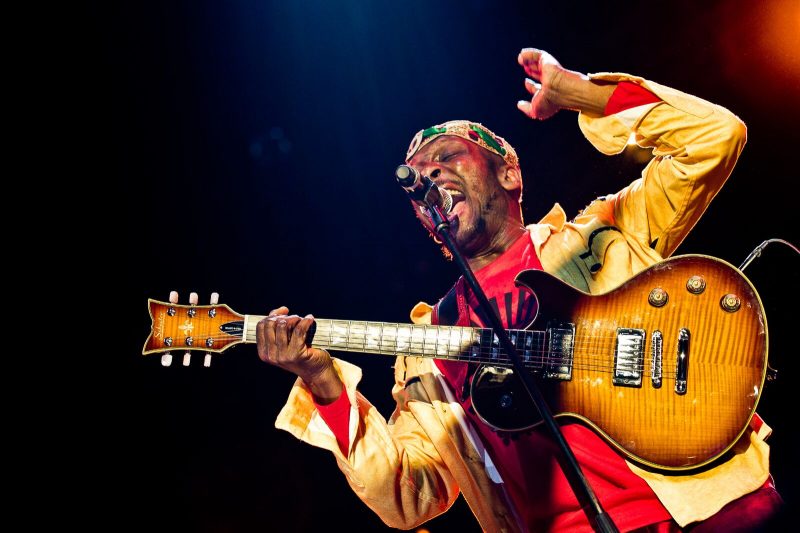
Jimmy Cliff and his band are appearing at the Innervisions Festival at London’s Roundhouse on 5th July and at the Cornbury Festival in the Cotswolds on July 13th.
The Innervisions Festival is held across London at various venues from 3rd to 14th July, staged by promoters AGMP.
A sparkling and eclectic array of artists appearing, including Jimmy Cliff, Angie Stone, Black Star (Yasin Bey & Talib Kweli), Mario Biondi, George Clinton, Mavis Staples, Icognito, Lalah Hathaway, Leroy Hutson, Carleen Anderson, Fred Wesley, Cymande and many more.
Cornbury Festival marks its 15th year with a cracking International line-up. Friday 13th is going to be lucky for fans of UB40 who headline, plus Jimmy Cliff, Zucchero, Stereo MC’s, Lucas Nelson and more.
Saturday 14th sees an all-female line-up; topped by Alanis Morissette, and featuring Mavis Staples, Amy Macdonald, Pixie Lott, Nina Nesbitt and P.P. Arnold, among others.
Squeeze headline the final day, and are joined on the bill by Caro Emerald, Deacon Blue, Marc Cohn, Andy Fairweather Low, Lissi, Mari Wilson and Eli Paperboy Reed, among others.
Jimmy also has 2018 UK shows in Derbyshire (May), Birmingham (July), Bristol (July), Dorset (August), Ireland (Aug), Glasgow (Aug) and Hampshire (Aug).
- www.innervisionsfestival.com
- www.cornburyfestival.com
By Simon Redley



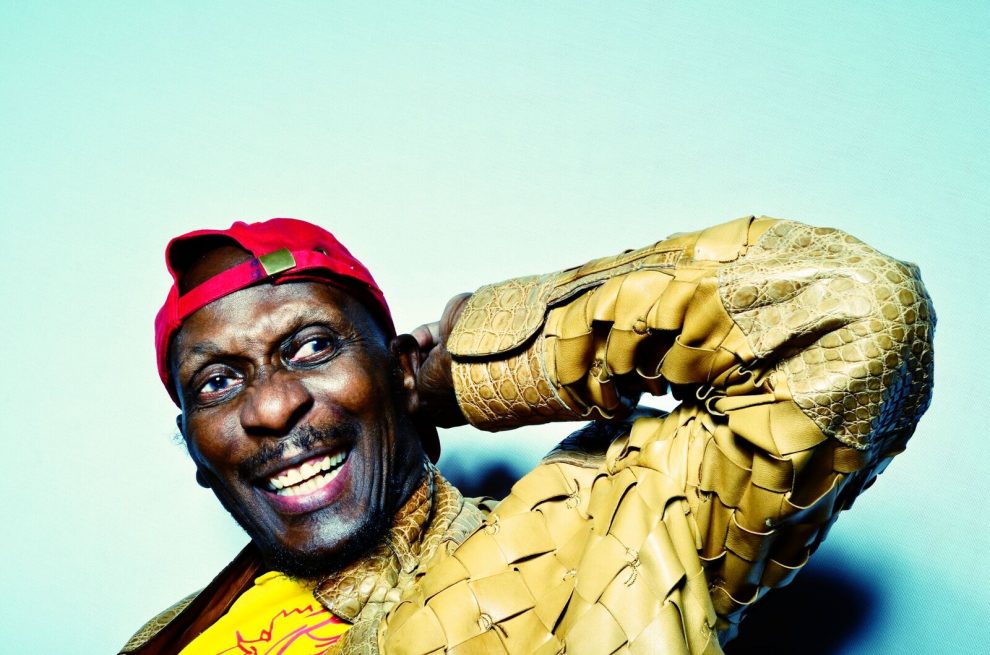
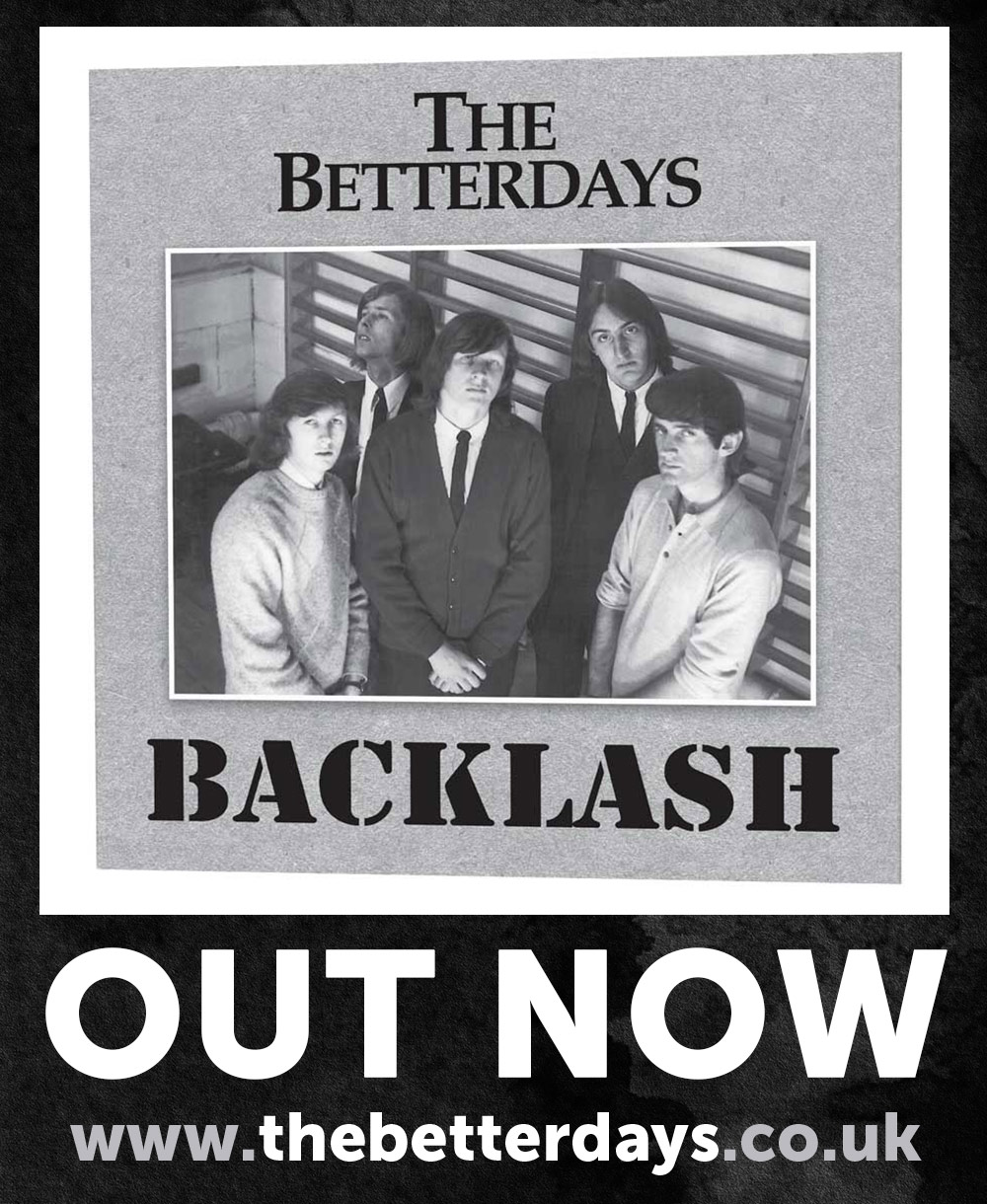

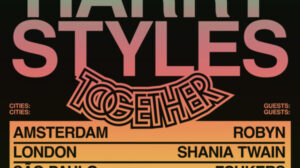





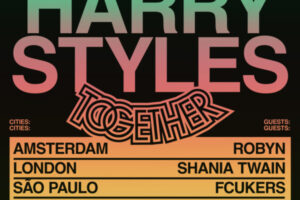

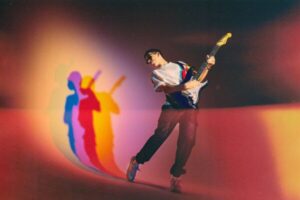


Recent Comments